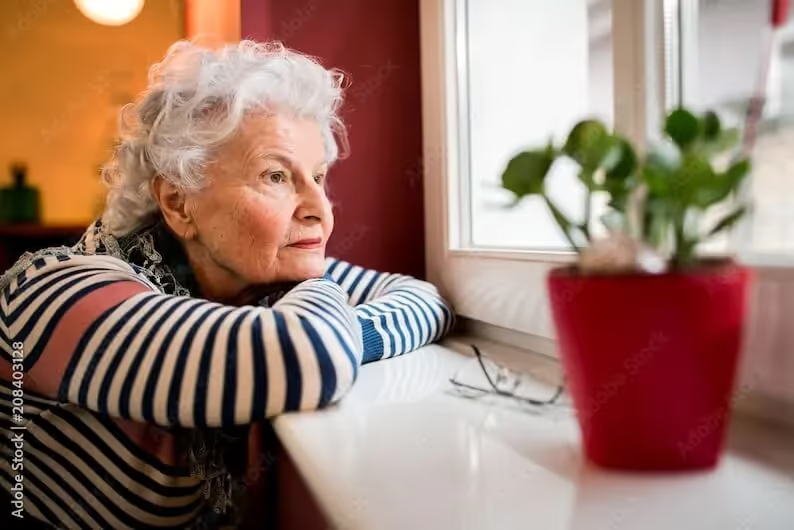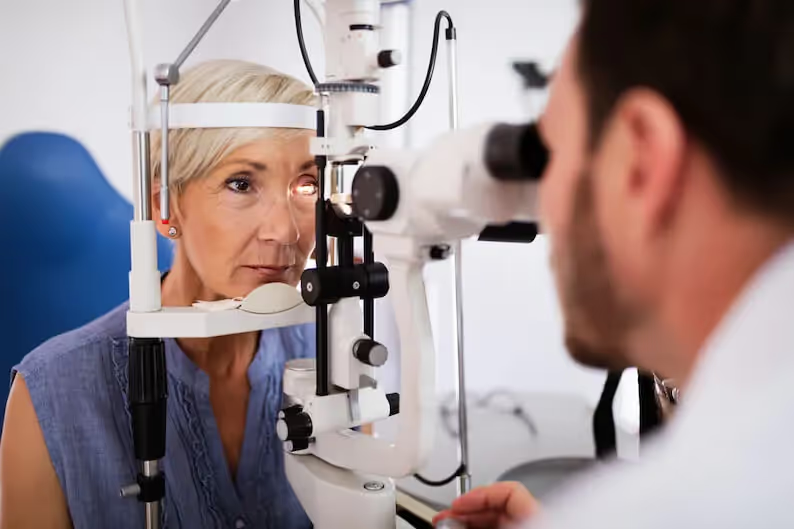Depression is something that can affect people at any age, including older adults. It's more than just feeling sad—it's a serious problem that can make everyday life hard. For seniors, depression can be especially difficult to deal with because it is sometimes seen as a normal part of getting older. But depression in older adults is not something they just have to live with. There is help available, and there are ways to feel better.
What is Depression?
Depression is a mental health condition that affects how someone feels, thinks, and acts. It is more than just feeling sad sometimes. When someone is depressed, they may feel hopeless, tired all the time, or lose interest in activities they once enjoyed. This can make it hard for them to enjoy their daily life. It's important to know that depression is not just about being sad. It can affect how a person feels physically, too. For example, they may have aches and pains or trouble sleeping. If these symptoms go on for a long time, it could be depression.
Symptoms of Depression in Seniors
Depression in older adults can look a little different than it does in younger people. Sometimes, people think the signs of depression are just part of getting older, but that's not true. It's important to know what to look for. Some common signs of depression in seniors include:
- Feeling sad or hopeless: Feeling down or empty most of the time.
- Lack of interest in activities: Not enjoying things that used to be fun, like hobbies or socializing.
- Feeling tired: Lack of energy, even after resting or sleeping.
- Physical complaints: Experiencing aches, pains, or other physical problems that don't seem to go away.
- Trouble concentrating: Having a hard time focusing or making decisions.
- Sleep problems: Either sleeping too much or not being able to sleep.
- Thoughts of death or suicide: In serious cases, depression can lead to thoughts of harming oneself. This is very serious and needs immediate help.
Depression can also make it harder for seniors to manage other health problems. If a person already has a health condition, like heart disease or diabetes, depression can make it worse.
What Increases the Risk for Depression?
There are certain things that can make older adults more likely to get depression. These include:
- Loss of a loved one: Losing someone close can make seniors feel very lonely and sad.
- Chronic health problems: Long-term health issues can make someone feel physically and emotionally drained.
- Isolation: If seniors are alone a lot, they might start to feel lonely or disconnected, which can lead to depression.
- Physical problems: Having trouble moving or dealing with constant aches and pains can make someone feel sad or hopeless.
- Money problems: Worrying about money or medical bills can be very stressful and contribute to depression.
- Previous depression: If a person has had depression in the past, they might be more likely to have it again as they get older.
Depression Is Not Just Part of Aging
Many people think that feeling sad or hopeless is just part of getting older. But that's not true. Depression is not something that has to happen when you age. It is a real condition that can be treated. If depression is not treated, it can make life harder. It can cause seniors to withdraw from friends and family, become more physically ill, or not be able to manage their health conditions well. But the good news is that with the right treatment, depression can be treated and seniors can feel better.
How to Treat Depression in Seniors
There are many ways to treat depression, and everyone is different. Here are some common treatments that can help:
- Therapy (Talk Therapy):Talking to a therapist can help seniors understand their feelings and learn how to cope with them. A type of therapy called cognitive-behavioral therapy (CBT) is especially helpful in changing negative thoughts that make depression worse.
- Medicine: Doctors can prescribe antidepressant medications to help balance chemicals in the brain that affect mood. It's important for seniors to work with their doctor to find the right medication.
- Exercise: Getting some physical activity, even a short walk, can help improve mood and reduce depression. Exercise can release chemicals in the brain that help people feel better.
- Social Support: Staying connected with friends and family is very important. Having someone to talk to can make a big difference in how a senior feels.
- Electroconvulsive Therapy (ECT): In some cases, when other treatments don't work, doctors may suggest a treatment called electroconvulsive therapy (ECT). ECT involves sending small electric currents to the brain to help treat severe depression. It sounds scary, but it's safe and can really help people who are struggling with severe depression.
The Hope for a Better Future
If you or a loved one is dealing with depression, it's important to remember that there is help available. Depression is not something that has to take over life. With the right treatment, it is possible to feel better and enjoy life again. By recognizing the signs of depression, understanding the risks, and exploring the many treatments available, seniors can get the help they need. If you see signs of depression in an older adult, encourage them to talk to a doctor. Reaching out for help can be the first step to feeling better and living a happier life.




%20(1).jpg)